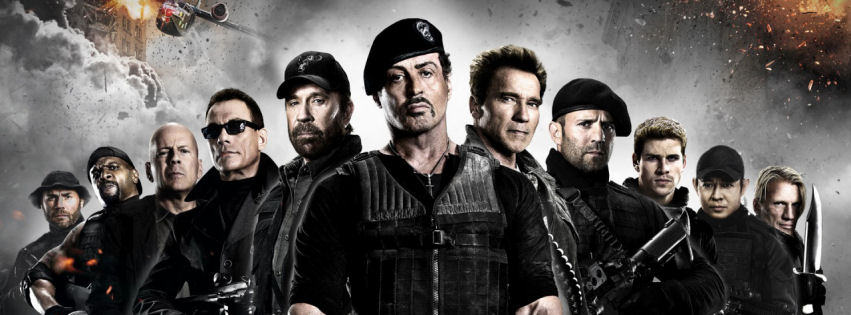I got talking action movies with a buddy recently, and we got on the subject of where the line of realism versus entertainment lies. We’re both combat veterans, and we’ve both seen long periods of mind-numbing boredom and moments of chaotic weirdness that happen in combat.
There are often comments on action movies, and action novels, about how “realistic” they are. And while some things are easy to quantify, some elements aren’t so much. Including the question, “Just how ‘realistic’ should a piece of action entertainment be?”
In some ways, it’s subjective. There are some guys who can put various things aside and enjoy a movie or a story. Others get down into the nitpicky level. And sometimes it varies, case by case. For myself, I know it definitely varies. I can enjoy the Expendables movies for what they are (Well, the first and the third. The second one was so far up it’s own ass with winking at the audience that it couldn’t make up its mind what it was doing.). Meanwhile, I couldn’t get ten minutes into Sicario, and the 40mm grenade blowing a technical in half in 13 Hours was beyond groanworthy.
I think some of it comes down to where the suspension of disbelief really lies. When writing fiction, you’re already setting up a situation and characters that do not exist. Sure, the situation can be drawn from history or current events, but the fictional characters are entirely products of the author’s imagination and so are their actions.
Some liberties can (and should) be taken in action adventure fiction. For one thing, as I’ve pointed out, military deployments tend to be extremely boring for the most part. Firefights can take minutes to hours, often out of months on end, and even firefights, in Iraq and Afghanistan, have at times become regular occurrences, not unlike “Washing Machine Charlie,” the regular nightly bombings of the airfield on Guadalcanal by the Japanese. Nobody picks up an action adventure novel, or sits down in front of an action movie, for hours of grunts in a FOB or special operations soldiers in a team room, endlessly bullshitting about movies and chicks.
So, the author/screenwriter has to strike a balance between believability and excitement. A lot of readers and audience members these days know weapons handling, and some basic tactics. Having your hero leaping through the air, double-fisting pistols and mowing down dozens of bad guys without taking a scratch, is going over the line. A story has to be internally consistent. You can step into the area of fiction when it comes to scenarios, including such things as hiring mercenaries to handle terrorist groups or pirates, in a way that hasn’t been seen since Executive Outcomes. But if you make those mercenaries, in what is otherwise a gritty action adventure story, into poorly thought out superheroes, then you’ve lost a good part of your audience.
What I try for is what David Reeder over at Breach-Bang-Clear called “Distilled Realism.” I try to cut out the boring parts (Which often includes the mission planning phase; trust me, it’s not exciting. Six hours of studying maps, loading mags, packing gear, loading radios, and building a brief is miserable.). And if sometimes it seems like the odds are a little too long…well. There you can sometimes say that it’s fiction. And as I said before, sometimes weird stuff happens in combat. Odds aren’t everything.
A lot of it depends on what you’re trying to write. Is the action the centerpiece? Or are you trying to tell a story about personalities at war? In the latter case, you might want to include the “boring parts.” But keeping the details right, such as weapons, gear, and generally physically possible feats (no, you’re not going to hit anything that you’re shooting at while jumping through the air firing two pistols, though you might hit someone you’re not shooting at), will help the audience suspend their disbelief, provided the story is good.

I think this formula is where TF desperate and the series really succeeded. You addressed the passage of time and how it sucked, or the planning phases and coordination and you sprinkle enough detail in to show the reader you know the craft but keep the pages turning and the action constant (I’m reading it again for The Who knows how many-eth time)
I like the term ‘Distilled Realism’ and I probably fall into ‘personalities at war’ in my novels, since I included the mission briefing in the story; without all the faff though.